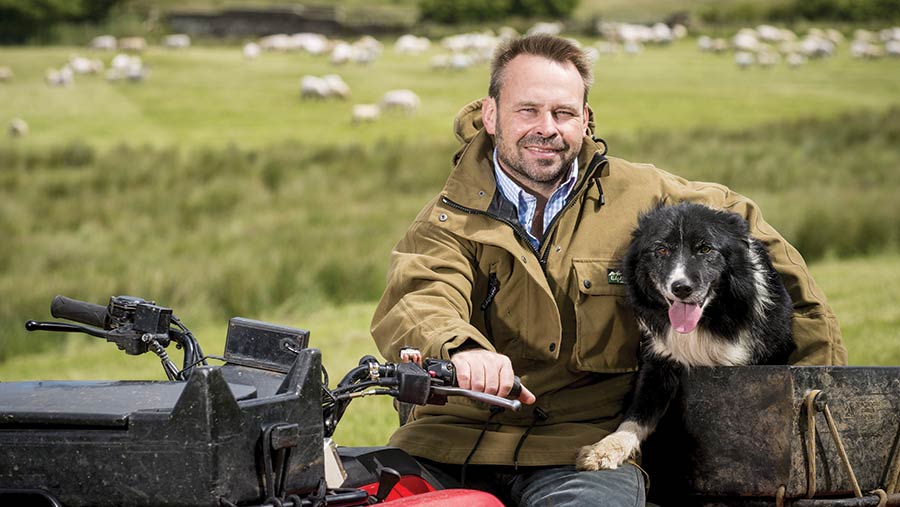Farmer Focus: A big day on the calving front
 © Jim Varney
© Jim Varney Both calving and lambing are going well, helped in no small part by the sun coming out and the end of the ceaseless rain falling from the sky.
Despite the sun shining, the temperatures are nothing special and gloves and hats are still part of the daily wardrobe.
Today has been a big day on the calving front, with eight calved already as I write this (1 May).
All the improved ground and reseeds have good covers of more than 1,500 kg/ha DM, but the old rigg and furrow pastures have only 1,100 kg/ha DM. This is just about OK for the singles to lamb down on to.
See also: Cold, wet spring conspires against farmers
We are doing some work with our vets and the vets at the University of Edinburgh blood-testing cows and calves, looking at the transfer of passive immunity from cow to calf through maternal colostrum.
Blood samples were taken pre-calving from the cows and energy balance, body condition, protein status and mineral status were investigated.
All levels were good except for protein, so we added 1kg of a 28% protein pellet to the ration pre-calving which has corrected any protein deficit.
Cows are calving well. We are on target for 65% calving in 21 days, with no retained cleansings. Colostrum/milk production is good and calves have plenty of get up and go.
In terms of a British agriculture policy post-Brexit, there are many instances of public money for public goods in the uplands: water, wildlife, biodiversity, carbon capture and tourism to name but a few. For years farmers have been delivering public goods without it always being recognised.
How do you put a value on the benefits we deliver when previously they have been taken for granted?
The challenge is getting from where we are now to the future environmental schemes without massive holes in farm cashflows.
I think Gove et al may have to frontload the new scheme in the early years as the BPS reduces and we adjust to the new structure, or there could be a significant number of casualties.
Simon Bainbridge farms a 650ha upland organic farm with 160 suckler cows, 1,500 breeding ewes and 12,000 organic laying hens with his wife, Claire, and his parents. Healthy, maternal livestock and quality feed is a priority.
